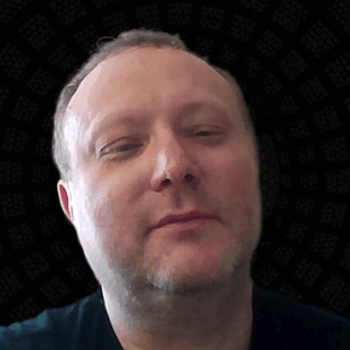In a world where narratives are shaped faster than scientific consensus, Dr. Robert Malone stands as a controversial yet fascinating figure. From his early work in gene therapy to his critiques of government psy-ops and media manipulation, Malone’s story is as complex as the science he pioneered. Let’s dive into the whirlwind journey of Dr. Robert Malone: His personal experience with mRNA Technology and Government PsyWars, exploring the murky waters of informed consent, redefined societal terms, and public health governance.
Table of contents
- The Birth of mRNA Technology: A Scientist’s Playground or Pandora’s Box?
- The Ethical Quagmire of mRNA Vaccines: A Gene Therapy Debate
- Government PsyWars: Redefining Truth, One Narrative at a Time
- Omicron and Other Turning Points in the Pandemic Saga
- Lessons for the Future: Ethics, Transparency, and Credible Science
- FAQs
- Conclusion: Truth or PsyWar?
The Birth of mRNA Technology: A Scientist’s Playground or Pandora’s Box?
What Sparked Malone’s Focus on mRNA and Therapeutics?
Dr. Malone’s journey began in the 1980s, tinkering with mRNA and gene therapy technologies at the Salk Institute. This was not your average weekend hobby—it laid the foundation for genetic vaccines as we know them today. Malone’s advocacy for repurposed drugs during the COVID-19 pandemic echoed his belief in existing medical treatments over the one-size-fits-all vaccine approach. But hey, why bother with the old when you can slap “new and improved” on the label?
Fentanyl vs. COVID: Which Crisis Gets More Screen Time?
According to Malone, the daily toll of fentanyl deaths in the U.S. surpassed the peak mortality of COVID-19. Yet, the national response was crickets compared to the pandemic hysteria. Perhaps fentanyl needed better PR—or a catchy slogan.
The Ethical Quagmire of mRNA Vaccines: A Gene Therapy Debate
Is Informed Consent Now a Relic of the Past?
Dr. Malone categorizes mRNA vaccines as gene therapy products, raising red flags about the lack of informed consent. It’s as if “informed consent” became a victim of budget cuts in the rush to roll out vaccines. Who needs autonomy when you have mandates?
Historical Contributions: A Legacy of Innovation and Controversy
From his foundational work in gene therapy to influencing genetic vaccines, Malone’s legacy is undeniable. But as the saying goes, no good deed goes unpunished—especially when it challenges the status quo.
Government PsyWars: Redefining Truth, One Narrative at a Time
How Did “Anti-Vaxxer” Become a Weaponized Term?
Malone criticizes the redefinition of “anti-vaxxer” to include anyone questioning vaccine policies. It’s like calling a food critic “anti-food” because they don’t like your cooking. The deployment of psychological operations (psy-ops) during the pandemic, tied to fifth-generation warfare doctrines, added another layer of intrigue—or Orwellian dread.
The Role of Advocacy Journalism in Shaping Perception
Malone doesn’t mince words about the rise of advocacy journalism, heavily influenced by organizations like the Bill and Melinda Gates Foundation. News or narrative? Sometimes it’s hard to tell the difference.
Omicron and Other Turning Points in the Pandemic Saga
Was Omicron a Blessing in Disguise?
Malone viewed the Omicron variant as a natural evolution—less pathogenic but offering widespread immunity. Mother Nature’s version of herd immunity didn’t come with a patent, making it less lucrative but undeniably effective.
The Convergence of Climate and Virus Narratives
Drawing parallels between climate change and virus messaging, Malone highlights the fear-driven tactics that dominate public discourse. Fear, it seems, is the universal language of compliance.
Lessons for the Future: Ethics, Transparency, and Credible Science
Can We Learn from Past Pandemics?
Dr. Malone advocates for tying research funding to transparency and ethics. Imagine a world where science isn’t swayed by financial incentives—a utopia, or just common sense?
What’s Next for Public Health Governance?
From ethical decision-making to the need for credible scientific discourse, Malone’s reflections underscore the importance of truth and integrity. In his view, societal resilience depends on these pillars.
FAQs
Dr. Robert Malone is a scientist and innovator credited with foundational work in mRNA and gene therapy technologies. He is also a vocal critic of current public health policies and media narratives.
Malone’s critiques of mRNA vaccines, government psy-ops, and media manipulation have made him a polarizing figure. Supporters hail him as a truth-teller; critics label him a contrarian.
Fifth-generation warfare involves psychological and informational strategies to influence perception and behavior, often blurring the line between truth and propaganda.
He believes therapeutics offer a more flexible and immediate response to viral outbreaks, as demonstrated in past pandemics.
He advocates for transparency, ethics in research, and balanced public health strategies.
Conclusion: Truth or PsyWar?
Dr. Robert Malone: His personal experience with mRNA Technology and Government PsyWars is more than a tale of scientific innovation; it’s a cautionary story of ethics, media, and the battle for public perception. Whether you view him as a maverick or a misfit, Malone’s insights compel us to question the narratives we consume—and the ones we unwittingly perpetuate. After all, the future of public health governance depends on more than just science; it hinges on truth, integrity, and accountability.
Discover more from Randy Bock MD PC
Subscribe to get the latest posts sent to your email.


























Comments 3